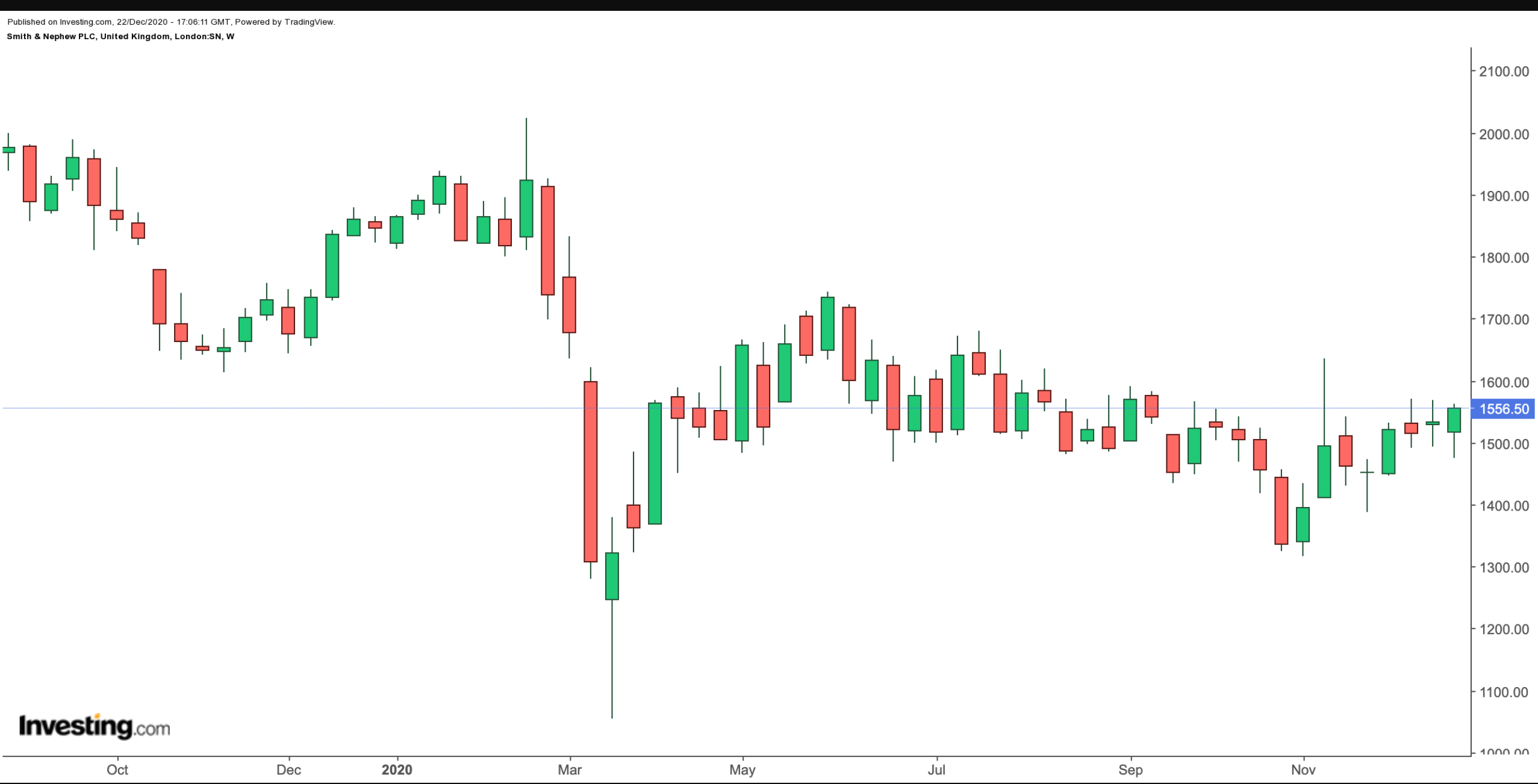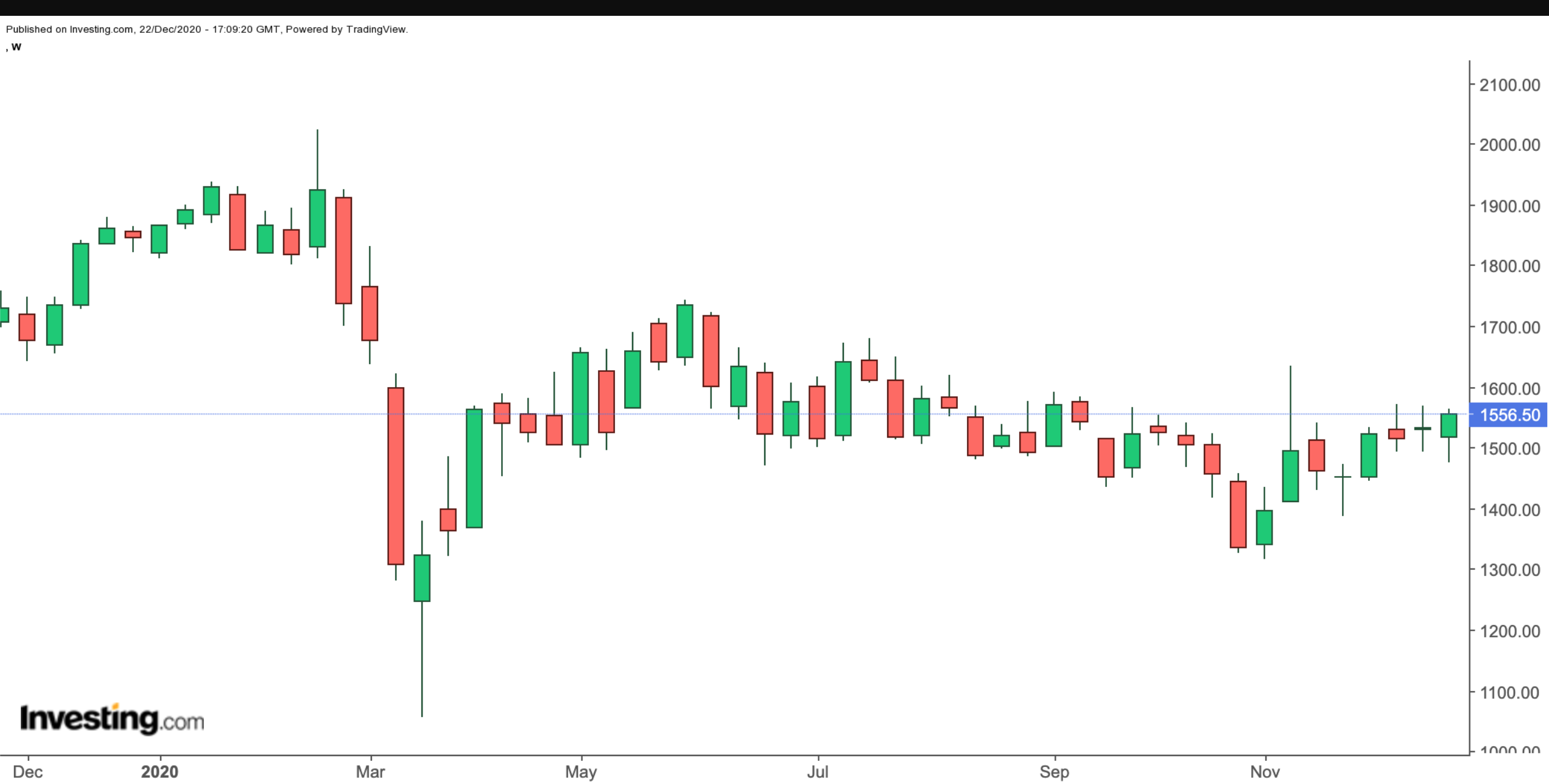Stocks of medical technology firms manufacturing and marketing health-care products have had a mixed year. In the wake of the outbreak of the coronavirus pandemic, elective surgeries have been delayed or even cancelled in many countries.
As the rollout of vaccines into 2021 brings more normality to our lives, as well as to the healthcare sector, two UK-headquartered global companies may pique investor interest: Smith & Nephew (LON:SN), (NYSE:SNN) and ConvaTec (LON:CTEC), (OTC:CNVVY).
We believe the long-term growth possibilities for each remains upbeat in a post-COVID world. According to metrics from the United Nations:
"Virtually every country in the world is experiencing growth in the number and proportion of older persons in their population... [B]y 2050, one in six people in the world will be over age 65 (16%), up from one in 11 in 2019 (9%)."
Similarly, the UK's Office for National Statistics suggests:
"In 50 years’ time, there are likely to be an additional 8.6 million people aged 65 years and over – a population roughly the size of London.”
1. Smith & Nephew
Headquartered in Watford, Smith & Nephew is listed on the FTSE 100. Its operations extend to more than 100 countries, where it employs close to 18,000 people. In 2019, annual sales were $5.1 billion (or £3.8 billion).
The company focuses on three segments:
- Orthopedics;
- Sports medicine and ear, nose and throat (ENT);
- Advanced wound care.
SN stock currently trades 15% lower than at the start of the year. On Dec. 22, it closed at 1,556.5p. ($41.85 for U.S.-based shares). The current price supports a dividend yield of about 2.1%.

In late October, the group announced third-quarter metrics. Revenue came at $1.2 billion (£900 million), down 3.7% YoY. Management noted that the number was a significant recovery from the Q2 underlying decline of 29.3%.
The U.S. market, which returned to growth, was up 0.9% YoY. However, other than China, which also grew, emerging markets were in decline.
CEO Roland Diggelmann said:
"I am pleased with our progress in the third quarter ... [A]s global levels of elective surgery recovered [we] delivered a substantial improvement in performance over the previous quarter, led by growth in both the U.S. and China, our two largest markets."
SN stock's forward P/E and P/S ratios are 20.49 and 3.91, respectively. Although we like the shares, given the likelihood of a possible third wave of the pandemic across the world, we'd wait to invest, at least until the release of Q4 results in late January. A potential decline of 5%-7% would improve the margin of safety and make the valuation more attractive.
An aging population in many of its main markets as well as increased health-care spending in emerging markets are likely to provide tailwinds for Smith & Nephew in future quarters.
2. ConvaTec
Reading-based FTSE 250 member, medical technology group ConvaTec specializes in the management of chronic conditions. It is well-known for products that focus on advanced wound care, ostomy care (for the removal of body waste), continence, critical care and infusion care (or intravenous therapy).
ConvaTec employs more than 9,000 individuals globally, and in 2019 it generated revenues of $1.83 billion (£1.37 billion).
Since the start of the year, CTEC stock has returned over 8%. On Nov. 22, the shares closed at 202.6p. ($11.15 for U.S.-based stock). The dividend yield stands at 2.3%.

Management provided a trading update in late October. Revenue was $493 (£369) million, up 6.5% YoY. Despite the revenue increase, the pandemic continued to affect the Advanced Wound Care and Critical Care segments.
CEO Karim Bitar, who was pleased with the results, commented:
"We continued to respond well to stronger than anticipated customer and patient demand, particularly in our infusion care and continence and critical care businesses. We now expect to deliver revenue growth at the higher end of our guidance range and to exceed our previous margin guidance for 2020."
CTEC stock's forward P/E and P/S ratios are 2.05 and 3.00, respectively. Like SN stock, we believe CTEC shares could be appropriate for long-term portfolios. Potential investors could consider buying the dips.
